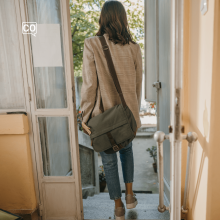Irse (to leave) - Pretérito perfecto, indicativo (Present Perfect, indicative) - Spanish

Irse - Conjugation of to leave in Spanish: Conjugation table, examples and exercises in the present perfect, indicative tense (Pretérito perfecto, indicativo).
Pretérito perfecto, indicativo (Present Perfect, indicative)
All conjugations and tenses: Irse (to leave) - conjugation and tenses - (Spanish)
Syllabus: Spanish lesson - Transporte (Transportation)
Conjugation of to leave in Pretérito perfecto
- yo me he ido I have left
- tú te has ido You have left
- él/ella se ha ido He has left.
- nosotros/nosotras nos hemos ido We have left
- vosotros/vosotras os habéis ido You have left
- ellos/ellas se han ido They have left
Example phrases
- Yo me he ido de la biblioteca después de leer el libro. I have left the library after reading the book.
- Tú te has ido al gimnasio después de hacer ejercicio. You have left to the gym after exercising.
- Él se ha ido de la lavandería después de secar la ropa. He has left the launderette after drying the clothes.
- Nosotros nos hemos ido de la piscina después de nadar. We have left the pool after swimming.
- Vosotros os habéis ido del supermercado después de comprar. You have left the supermarket after buying.
- Ellos se han ido de la escuela después de estudiar. They have left the school after studying.
Exercise: Conjugate the verbs - irse (to leave)
Instruction: Choose the correct word, read the sentence out loud and translate.
Show answers Show translationIrse (Pretérito perfecto, indicativo)
1. Tú ... al gimnasio después de hacer ejercicio.
2. Él ... de la lavandería después de secar la ropa.
3. Nosotros ... de la piscina después de nadar.
4. Ellos ... de la escuela después de estudiar.
5. Yo ... de la biblioteca después de leer el libro.
6. Vosotros ... del supermercado después de comprar.